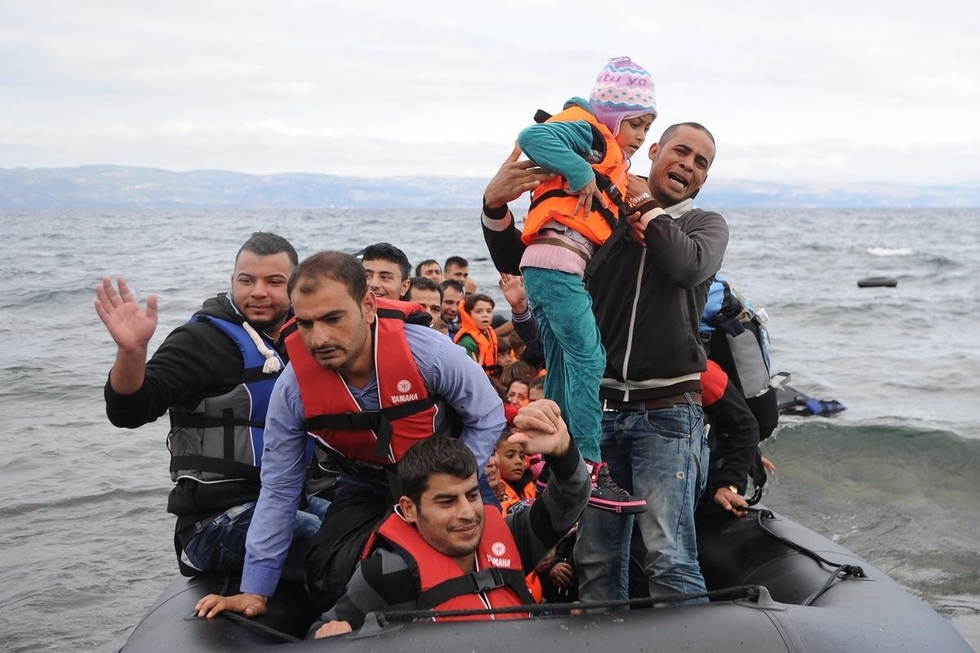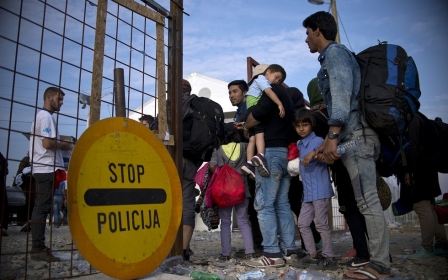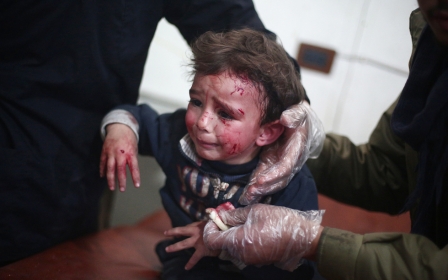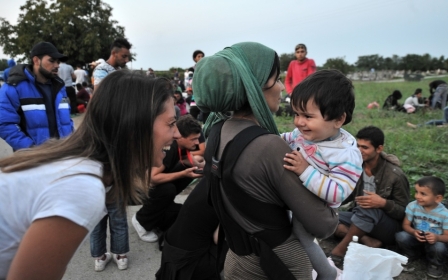Rich countries pledge $1.8bn for UN aid agencies and refugees

The G7 group of leading global economies, as well as several other European and Gulf countries on Tuesday pledged $1.8bn to fund UN aid agencies struggling with the worst refugee crisis in 70 years.
The commitment, which in part reflects earlier pledges, came after UN Secretary-General Ban Ki-moon told world leaders at the opening of the General Assembly in New York that UN aid agencies were "broke."
The pledge was announced after a meeting of foreign ministers of the G7 - Britain, Canada, France, Germany, Italy, Japan and the United States - with their counterparts from Austria, the Netherlands, Norway, Sweden, Switzerland, Turkey Kuwait, Qatar, Saudi Arabia and the United Arab Emirates.
Earlier in the week, Japan's Prime Minister Shinzo Abe separately announced a $1.5bn commitment to help counter the growing Middle East refugee crisis.
It would include $810mn to assist refugees from and within Syria and Iraq - triple the amount Japan provided last year - and $750mn for peace building in the Middle East and Africa.
The United Nations is struggling to help some 60 million people displaced by conflict, the highest number since the end of World War II.
"We have agreed to provide together $1.8bn for the international aid organisations of the United Nations, especially the UN refugee agency and the World Food Program," German Foreign Minister Frank-Walter Steinmeier told reporters.
The UNHCR chief thanked the donors of the pledges but noted that "the generosity of the international community has not diminished" over the past few years, with donations actually on the rise.
"But unfortunately, the needs have increased in a much more dramatic way," Antonio Guterres said.
"We were financially broke," he said, adding that UN agencies were unable to provide the "bare minimum" for refugees in countries neighbouring Syria.
"This was one of the reasons why we were witnessing more and more refugees moving onwards because it was impossible to sustain their lives in their first countries of asylum," added Guterres, a former Portuguese Prime Minister who is soon exiting the role after almost a decade as the UN’s High Commissioner for Refugee.
The United Nations is asking for a record $20bn to meet this year's needs - six times the level of a decade ago.
UN appeals for Iraq, South Sudan and Yemen have received about half of the funds needed and only a third of the money requested for Syria.
The individual breakdown of the sum was not immediately clear but Western sources said that the pledge reflects at least in part earlier commitments by the European Union and others.
Last week, EU leaders agreed at an emergency refugee summit to boost aid for Syria's neighbours, and said they would pledge at least $1bn through UN agencies, while also strengthening their borders to deal with a wave of migrants and refugees.
The foreign ministers of the G7 and the participating countries in a statement called "on all members of the international community to scale up their humanitarian assistance."
They also demanded that "refugees and displaced persons must be treated with dignity" and urged world leaders to address the "root causes of displacement".
But its not just UN agencies that are feeling the pinch.
Robert Mardini, the International Committee for the Red Cross (ICRC) regional director for the Middle East, said the funding gap for Iraq, Jordan and Lebanon reached “the alarming figure” of some $82mn for 2015 by the close of September.
“Paradoxically, 2015 is the year where we got the strongest support from some of our own donors – and yet we have the biggest deficit ever,” Mardini said.
“Humanitarian response is a sticking plaster, but this sticking plaster is indispensable in Syria, Iraq and the neighbouring countries today. Normally at this time of the year our activities in major war zones are fully funded. This year they are not," he added while saying that he remained hopeful donors would step up to meet the extra need.
The ICRC presented a record appeal for refugees in 2015, and now may be forced to dig into emergency reserves, an unprecedented step.
The war in Syria and Europe's migration crisis will take center stage at the United Nations on Wednesday, as world leaders seek to overcome deep divisions over how to address the turmoil.
Russia will chair a Security Council meeting on terrorist threats that is expected to focus on the crisis in Syria.
Ban will separately host a meeting on Europe's migration crisis aimed at agreeing on a global response.
Middle East Eye propose une couverture et une analyse indépendantes et incomparables du Moyen-Orient, de l’Afrique du Nord et d’autres régions du monde. Pour en savoir plus sur la reprise de ce contenu et les frais qui s’appliquent, veuillez remplir ce formulaire [en anglais]. Pour en savoir plus sur MEE, cliquez ici [en anglais].




